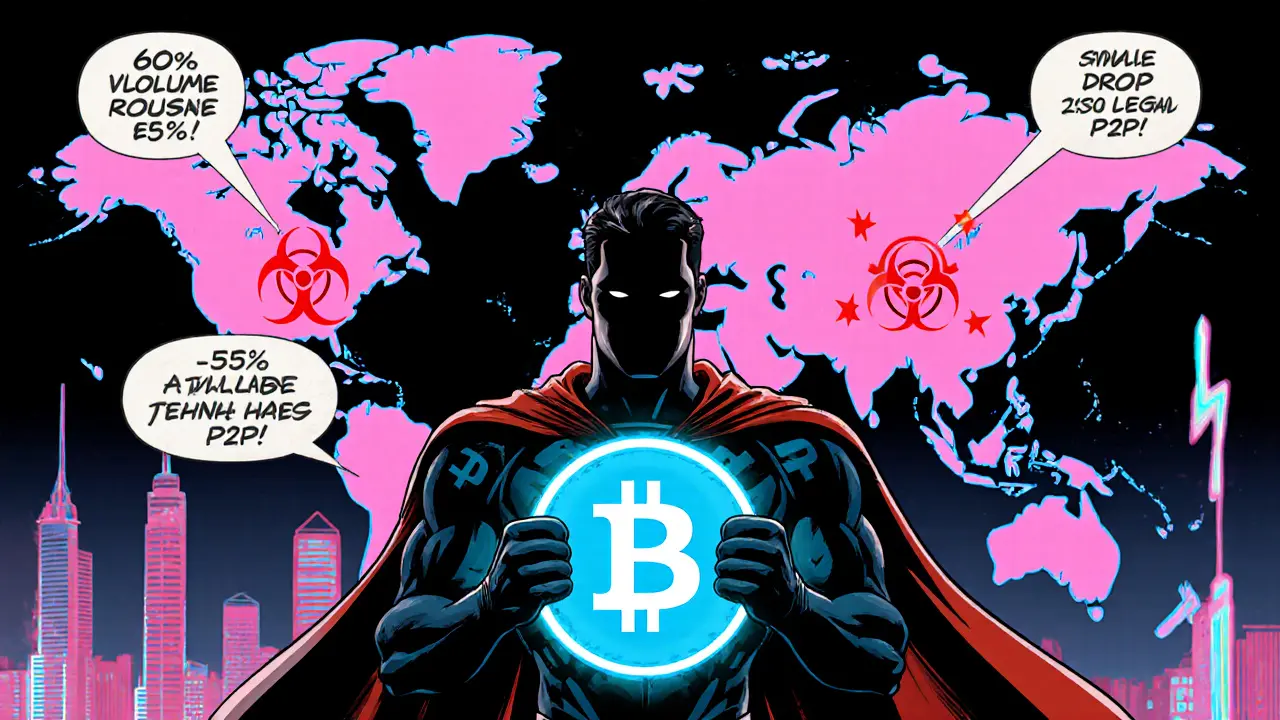Restricted Countries in the Crypto World
When navigating the crypto space, Restricted Countries, jurisdictions where governments block or heavily limit access to digital assets and related services. Also known as blocked jurisdictions, they shape who can trade, stake, or claim airdrops. Restricted Countries matter because they dictate what you can legally do with your crypto holdings.
One of the biggest forces behind these limits is Crypto Regulations, rules that define how digital assets are treated by a country's legal system. When a government tightens its regulations, exchanges, wallets, and even mining operations often have to pull back or shut down in that region. That ripple effect explains why you might see your favorite exchange disappear from the app store if you live in a newly restricted area.
Speaking of exchanges, Crypto Exchanges, platforms that let users buy, sell, and trade cryptocurrencies are the most visible victims of location bans. They need to implement KYC checks, geo‑blocking tools, and compliance teams to stay on the right side of the law. When an exchange can’t meet a country’s requirements, users in that area lose access to liquidity, market data, and often to their own funds if the platform freezes accounts.
How Location Impacts Airdrops and Scams
Airdrops look tempting, but Airdrop Eligibility, the set of criteria that decide who can claim a free token distribution frequently includes a country filter. Projects want to avoid legal trouble, so they outright exclude residents of restricted countries. That means the same user who can trade on a compliant exchange might be barred from a lucrative airdrop simply because of where they live.
Unfortunately, the same geo‑filters also attract scammers. In regions where legitimate projects can’t operate, fraudsters flood the market with fake airdrop promises and bogus exchange sites. Understanding the link between restricted countries and crypto scams helps you spot red flags: look for unusually high yields, demands for private keys, or requests to bypass regional bans.
Beyond airdrops, payment cryptocurrencies like Bitcoin and Litecoin face similar hurdles. When a nation classifies these as illegal, merchants can’t accept them, and wallets may be removed from official app stores. This limits everyday use cases and pushes users toward privacy‑focused tools that often operate in a legal gray area.
So, how do you stay safe and still participate? First, check the latest Crypto Regulations for your country. Many governments publish updates on their finance ministry sites. Second, pick exchanges that publicly disclose their compliance policies and have a clear process for dealing with users in restricted regions. Third, verify airdrop sources by comparing official announcements on project websites and trusted community channels.
The landscape shifts fast. A country that blocks crypto today might relax its stance next year, opening new opportunities for trading, staking, and earning. Keeping an eye on regulatory news, exchange announcements, and community alerts ensures you don’t miss out when the rules change.
Below you’ll find a curated list of articles that dig deeper into each of these topics— from detailed breakdowns of country‑specific regulations to step‑by‑step guides on how to claim airdrops safely, and tips for avoiding scams in blocked jurisdictions. Use them as a practical toolkit to navigate the challenges that restricted countries bring to the crypto ecosystem.

P2P Crypto Trading Volumes in Restricted Countries - 2025 Data
Explore how sanctions, exchange policies, and local laws shape P2P crypto trading volumes in restricted countries, with data, trends, and future outlook for 2025.
August 2 2025